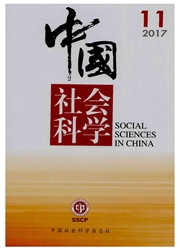

 中文摘要:
中文摘要:
基于回归方程的收入差距分解发现,1988年、1995年和2002年,行业间收入不平等对中国城镇居民收入差距的贡献越来越大,而且这主要是由一些收入迅速提高的垄断行业造成的。同时,区位、教育、所有制和职业类型以及是否有第二职业对收入差距的贡献也在提高,是否完全就业和年龄对收入差距的贡献明显下降。因此,缩小中国城镇收入差距,亟需打破劳动力市场进入壁垒和产品市场行业垄断。此外,减轻地区间的劳动力流动障碍、普遍提高劳动者的受教育水平等措施也将是未来政府缩小城镇收入差距的重要政策着力点。
 英文摘要:
英文摘要:
Regression-based decomposition of inter-industry earnings differentials shows that in 1988, 1995 and 2002, inter-industry earnings differentials made an increasing contribution to urban earnings inequality in China. The primary reason for the widening gap lay in monopoly industries. At the same time, geographical location, educational level, type of enterprise ownership, type of occupation and whether the individual had a second job also contributed to rising earnings inequality, while age and being fully employed made a decreasing contribution. Therefore, if China is to reduce the earnings gap it is imperative that we remove barriers to labor market entry and break down some monopoly industries in the product market. Additionally, reducing obstacles to the free movement of labor and improving workers' educational level should also be important elements of the government's strategy for reducing the urban income gap in future.
 同期刊论文项目
同期刊论文项目
 同项目期刊论文
同项目期刊论文
 期刊信息
期刊信息
